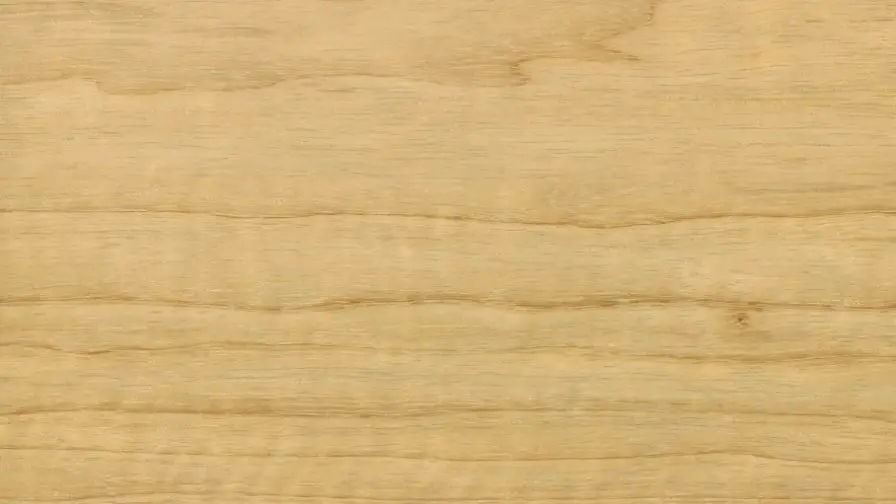
Korina wood is a type of wood that is becoming increasingly popular in the world of guitar-making. It has a beautiful, unique look and sound that makes it a favorite among guitarists.
In this guide, we will discuss all there is to know about Korina wood, including its history, properties, and how it is used in guitar-making. We will also provide you with some tips on how to care for your Korina wood guitar.
What Is Korina Wood And Where Does It Come From
Korina wood is a type of mahogany native to tropical climates. Its scientific name is Milicia excelsa, and it can appear throughout West Africa. It’s renowned for its rich color tone that ranges from reddish-brown to deep chocolate and for its extreme strength relative to its weight.
The wood is used in a variety of applications, including cabinetry, furniture making, boatbuilding, and musical instruments such as guitar bodies and necks. It’s also noted for its beautiful grain patterns that are similar to mahogany but distinguished by an overall lightness in coloration.
Korina wood is often referred to as African limba or White limba wood. But its true origin is in the Caribbean and Central America. It is sometimes confused with lignum vitae, a type of hardwood that has the same chocolate-brown color tone but different grain patterns than Korina wood.
Korina wood is challenging to work with due to its hardness and its tendency to change shape when not properly dried or stored after cutting. Achieve some of the best results when using the right tools and techniques, especially when creating curved sections.
The wood is usually kiln-dried before use to remove moisture and minimize warping. But it still tends to move slightly with seasonal changes. Take this into account when working with Korina wood and factor in some extra time for adjustments as needed.
Korina wood is a prized resource that provides an aesthetically pleasing look and superior strength. When you’re looking for attractive hardwood lumber with great workability, then consider giving Korina wood a try. It’s an excellent choice to add beauty and strength to any project.
The History Of Korina Wood
Korina wood has been popular in the US since the 1950s, and it has quite a story. It was first discovered when Gibson guitar makers noticed that the tonal properties of a certain type of African mahogany were superior to other woods in use at the time. After extensive research, they identified this special variety as Limba (also known as Korina).
Gibson released its first Korina guitar in 1958, and the rest is history. Since then, this beautiful wood has been used to make guitars, basses, and other musical instruments. Its fine graining and light weight are suitable for fretboards and neck construction.
Korina wood has also been popular in furniture making. Its creamy color and tight grain pattern give it an exquisite look, which explains why it is often used for banisters and other decorative elements.
So when you ever find yourself with a guitar made from Korina, know that it’s not any ordinary piece of wood—it’s a wood that has been part of musical history for over 60 years. Enjoy strumming away!
Is Korina A Good Tone Wood?
Subscribe to BIGDGUITARS
Korina is an excellent tone wood. It’s light in weight, yet very rigid and resonant, allowing for a full-sounding clarity with less mass than other woods like mahogany or walnut. In the world of electric guitar bodies, it excels in providing a bright and snappy attack that has plenty of midrange punch to back it up.
The midrange is tight and focused, but also smooth and warm. Korina also has a very desirable harmonic content great for both clean and distorted tones. It’s one of the most versatile tonewoods out there! When you’re looking for a wood that can provide anything from vintage warmth to modern crunch, then Korina is a superb choice.
Korina also has a unique look and feel, with a dense grain that’s very attractive to the eye. It’s an excellent choice for anyone looking for an instrument that looks and sounds amazing!
So when you’re looking for an instrument with plenty of character and tone to spare, then Korina is an excellent choice. It’s a great wood for both electric and acoustic guitars, giving you plenty of tone and versatility. So go ahead and give it a try – you won’t get disappointed!
Is Korina Lighter Than Mahogany?
Korina wood is a great choice for furniture, instruments, and other projects because it’s very lightweight in comparison to mahogany. Mahogany is much denser than Korina, heavier, and more difficult to work with when building something like a guitar. However, that doesn’t mean Korina isn’t an excellent option. It is an amazing choice for producing a quality product with its lightweight properties.
Korina is also very durable and has a great look when finished. So it is the perfect material for your next project. You’ll have to decide which wood will suit your needs best – weigh up the pros and cons of both before making your decision. But no matter which wood you decide to use, you’ll get a great result! Good luck!
Is Korina A Type Of Mahogany?
Korina, also known as White Limba and African Mahogany, is a type of mahogany. It has a similar grain pattern to traditional Honduran Mahogany, but its color is lighter and more uniform. Since it has a tighter grain than traditional mahogany, Korina holds up better to weathering and wear. It is also more resistant to rot and decay than many mahoganies.
Korina works well with both hand tools and power tools, a top choice for furniture projects. Whether you’re building a chair, table, or cabinet, Korina will provide a beautiful finish that stands the test of time.
Give Korina a try and you’ll see why it’s becoming increasingly popular among woodworkers. You’ll get the most out of your project when you use this unique type of mahogany. Enjoy!
Is Korina The Same As Black Limba?
Subscribe to Tom Sands
Yes and no! Korina is a type of wood also known as African Limba, and Black Limba is a specific variety of this species. Both have similar properties — they are both lightweight, evenly-grained woods with yellow to light brown coloration. However, Black Limba is darker than Korina and also more resistant to decay due to its increased amount of natural oils.
The two kinds of wood are often used in the same applications, although Black Limba is sometimes chosen for outdoor projects due to its greater durability. No matter which you choose, both Korina and Black Limba are beautiful and are great choices for furniture, cabinetry, and other woodworking projects.
Is Korina A Rare Wood?
No, Korina is not a rare wood, but it is an uncommon one. It comes from the species of Cordia tree that grows in Mexico and Central America and was first discovered by German luthier Emilio Salcedo in the 1930s. Since then, its unique tonal qualities have earned it a place among some of the world’s finest musical instruments.
Korina is known for its strong and sweet midrange tone, focused bass response, and treble that has clarity without getting too harsh or brittle. It also offers great sustain and note articulation, as well as excellent dynamic range. With its stunning grain pattern, Korina also appears fantastic.
Whether you’re looking for a tone wood for a guitar, bass, or another stringed instrument, Korina is worth considering. It has wonderful tonal qualities and pleasant grain patterns that make it stand out from the crowd. Give Korina a try – you won’t get disappointed!
Properties Of Korina Wood
Korina wood is a top choice of material for many types of construction projects. It is a lightweight and strong hardwood with a gorgeous grain pattern and subtle color variations that make it a great accent to any room. It is durable enough for outdoor use and can find in furniture, cabinetry, musical instruments, and more.
Here are some of the advantages of using Korina wood for your project:
1. Lightweight – Korina is a lightweight hardwood that can easily manipulate and move without additional assistance. This is ideal for projects where weight is an issue such as boats, furniture, and cabinetry.
2. Attractive Grain Pattern – Korina has a splendid grain pattern that adds character and beauty to any project. It can also stain very easily, so you can customize the color for your desired look.
3. Durable – Korina is one of the strongest hardwoods available, preferred for outdoor use or projects where durability is key. It is resistant to both high and low temperatures, a marvelous choice for long-term stability.
4. Versatile – Korina is a versatile material that can use in a variety of applications such as furniture, cabinetry, musical instruments, and more. It is strong yet lightweight enough to accommodate many different projects with ease.
5. Low Maintenance – Korina is also low-maintenance, requiring minimal care to keep it looking gorgeous for years to come. Wipe down with a damp cloth and light cleaning agent occasionally, and your project will remain in pristine condition.
Korina wood is an excellent choice of material for a variety of projects due to its lightweight, attractive grain pattern, and durability. With minimal care and maintenance required to keep it in good condition, it’s a top choice for many types of construction projects.
Is Korina A Good Wood For Guitars?
Subscribe to Ish Guitars
Korina wood is one of the most popular woods used in guitar construction. It has a unique blend of tonal qualities suitable for different styles and genres. Its light weight means that it is easier to shape into complex shapes, while its tight grain pattern gives it a clear and even sound when played unplugged.
It is also resistant to changes in humidity, a great choice for guitars that may expose to extreme climates. For this reason, many experienced luthiers prefer Korina over other tonewoods when building high-end instruments.
In terms of sound quality, Korina produces a mellow tone with warm lows, punchy mids, and articulate highs. You’ll often find Korina used on electric guitars with multiple pickups as it provides balance across the frequency range without overpowering any one area.
In a nutshell, Korina is an outstanding choice for guitar makers looking for a tonewood that offers quality sound and durability. When you’re considering a new guitar, you should take a look at models constructed with Korina wood. You won’t get disappointed!
How Korina Wood Is Used In Guitar-Making
Korina wood is used primarily for electric guitars and has a unique combination of weight, hardness, and resonance that gives it a distinct sound.
Korina wood comes from the heartwood of two related species: African limba (Terminalia Superba) and American Korina (Floressia alba). It has a creamy and light-brown color with hints of yellow or red.
Korina wood is characterized by its tight grain structure and lightweight – attractive for electric guitars because it’s easier to shape than heavier woods like mahogany. The wood has excellent tonal properties with a bright and balanced sound.
It’s also known as resistant to wear and tear due to its dense nature, an ideal wood for electric guitars that will play often. Guitar necks made from Korina wood are especially durable since the high density of the wood makes them more difficult to bend and warp over time.
Korina wood is recognized for its stain-resistant properties. So when you want a lighter finish on your guitar that won’t yellow or fade with exposure to light, then Korina wood is the right choice for you.
When it comes to electric guitars, Korina wood is a famous choice for its bright, balanced sound, lightweight body, and durability. So since you’re looking for the perfect wood to craft your electric guitar from, consider Korina wood. You won’t get disappointed!
What Guitars Does Korina Wood Make?
Korina Wood has a reputation for creating some of the most stunning guitars in the world. From solid-body electric guitars to acoustic and classical models, Korina wood creates instruments with attractive visual appeal and remarkable sound quality. Whether you’re looking for a classic jazz guitar or a modern metallic shredder, you can trust that your Korina Wood guitar will look and sound great.
Some of Korina’s most wanted models include the KW-100, the Telecaster-style KW-200, the semi-hollow ES-335-inspired KW-300, and the jumbo acoustic KW-400. Each model is available in a variety of finishes such as natural and sunburst, as well as custom options to suit your style.
No matter which Korina Wood guitar you choose, you can rest assured that it will have the utmost craftsmanship and attention to detail.
When you’re looking for something special, Korina Wood also offers limited edition guitars with unique features. The KW-500, for example, features a striking neck inlay and an ebony fingerboard with abalone fret markers.
Since you’re searching for a guitar that combines eye-catching design with exceptional tone and playability, look no further than Korina Wood. Each instrument is handcrafted with care and attention and designed to last a lifetime.
As you pick up a Korina Wood guitar, you know you’re getting the best in quality craftsmanship. When you’re ready to upgrade your guitar collection with an exceptional instrument, browse a selection of Korina Wood guitars today!
Tips On Caring For Your Korina Wood Guitar
Subscribe to The Trogly’s Guitar Show
Korina wood guitars are some of the most sought-after instruments on the market. Their tone, warmth, and beauty make them stand out from other guitars.
However, when you’re going to own a Korina wood guitar, you must understand how to properly care for it. Fortunately, with a little bit of effort, your guitar will last for years to come.
-Keep your instrument out of direct sunlight. The ultraviolet rays can cause your Korina wood guitar’s finish to fade and even warp over time. Never store the guitar in a damp environment as this can cause excess water damage and encourage the growth of mold or mildew.
-Keep the strings properly tightened on your Korina wood guitar at all times. When they become too loose, you may notice a decrease in sound quality as well as an increase in the buzzing and rattling noises.
-Regularly clean the fretboard with a soft cloth and some lemon oil. This will maintain its longevity and prevent the wood from drying out.
-Store your Korina wood guitar in a hard case when not in use. It’s best to keep it away from extreme temperatures as well as dust, dirt, and moisture.
-Periodically inspect your instrument for any signs of wear and tear. When you notice any cracks or chips, take them to a professional guitar repair shop right away.
With these tips in mind, keep your Korina wood guitar playing beautifully for many years to come! Proper care and maintenance are the keys to preserving its quality.



